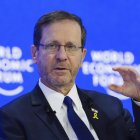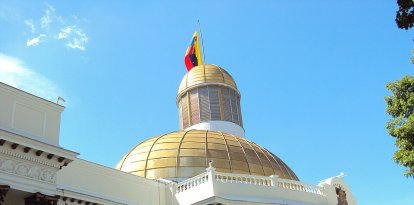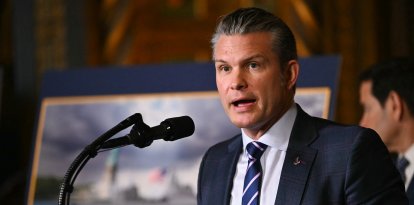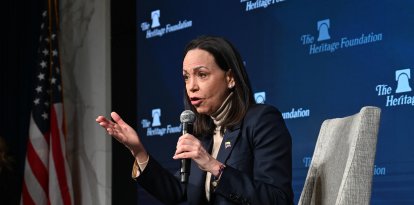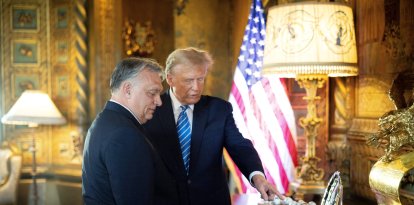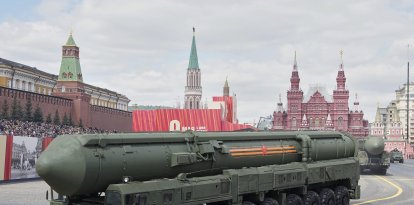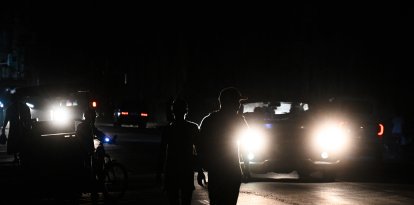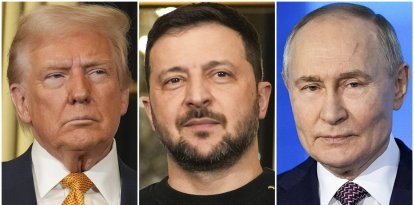BBC apologizes for airing pro-Palestinian terror documentary
The British broadcaster issued a statement acknowledging that it "has identified serious flaws" in the film "Gaza: How to Survive a War Zone," which it recently removed from the iPlayer platform.

BBC
The British broadcasting corporation BBC apologized for the broadcast of the documentary on the Gaza Strip which had generated strong criticism for its bias in favor of Palestinian terrorism.
It should be noted that the BBC recently removed the film from the iPlayer platform and announced that it launched an internal investigation after it revealed that a cameraman who worked on the British media outlet's documentary, titled "Gaza: How to Survive a War Zone," celebrated the Oct. 7 massacre and that the main protagonist is the son of a senior leader of the Hamas terrorist group.
The controversy deepened Monday after it emerged that the BBC expended 400,000 pounds (roughly $500,000) to make the film and Conservative leader Kemi Badenoch demanded to know whether license fee money was handed over to Hamas terrorists during the making of the film.
In addition, an investigation published in Israeli media outlet Ynet and the British newspaper The Telegraph notes that translations of Arabic words were altered during the documentary, in particular the term "Jews." which was replaced by "Israel" or "the Israeli forces." Also, significant alterations were found in the translation of local residents' testimonies, omitting words such as "jihad."
BBC's statement
In a joint statement issued by the BBC and Hoyo Films, the film's production company, they stated, among other things, that serious errors were made in the documentary and that they did not plan to rebroadcast it in its current format.
In the statement, the British media outlet claims that it "has identified serious flaws in the making of this [program]. Some of these were made by the production company, and some by the BBC; all of them are unacceptable. BBC News takes full responsibility for these and the impact that these have had on the Corporation’s reputation. We apologi[z]e for this."
"Nothing is more important than the trust that our audiences have in our journalism. This incident has damaged that trust. While the intent of the documentary was aligned with our purpose – to tell the story of what is happening around the world, even in the most difficult and dangerous places – the processes and execution of this [program] fell short of our expectations," it added.
Regarding the relationship between the teenage protagonist of the documentary and a leader of the Hamas terrorist group, he says: "During the production process, the independent production company was asked in writing a number of times by the BBC, about any potential connections he and his family might have with Hamas. Since transmission, they have acknowledged that they knew that the boy’s father was a Deputy Agriculture Minister in the Hamas Government; they have also acknowledged that they never told the BBC this fact. It was then the BBC’s own failing that we did not uncover that fact and the documentary was aired."
As for possible payment to Hamas, the British outlet notes, "Hoyo Films have told us that they paid the boy’s mother, via his sister’s bank account, a limited sum of money for the narration. While Hoyo Films have assured us that no payments were made to members of Hamas or its affiliates, either directly, in kind, or as a gift, the BBC is seeking additional assurance around the budget of the [program] and will undertake a full audit of expenditure."
In its statement, the BBC further indicates that Peter Johnson, the British broadcaster's director of complaints and editorial reviews, will conduct a rigorous investigation into the events.
"We have no plans to broadcast the [program] again in its current form or return it to iPlayer and will make a further assessment once the work of Peter Johnston is complete," the statement concluded.





